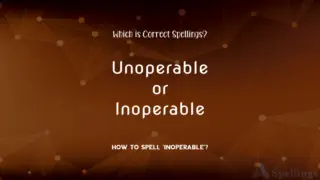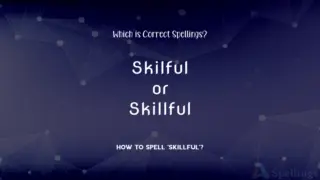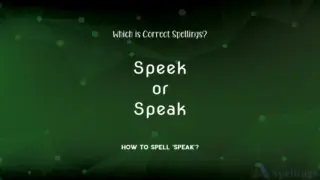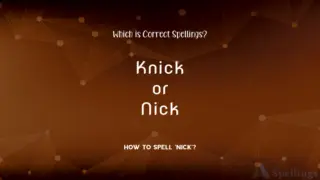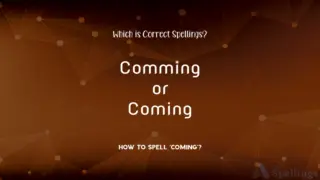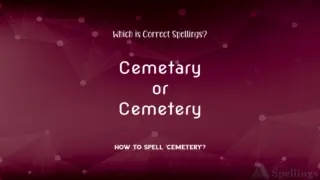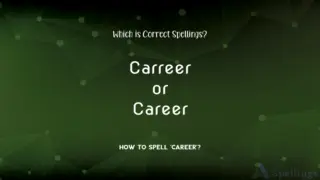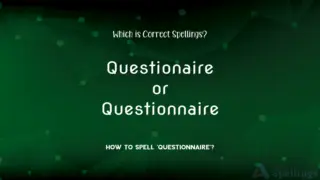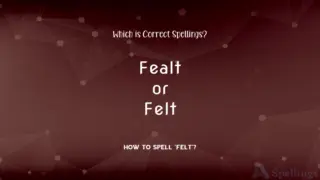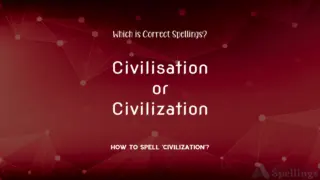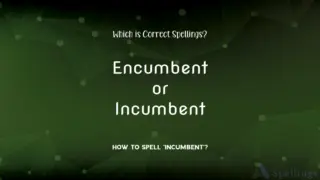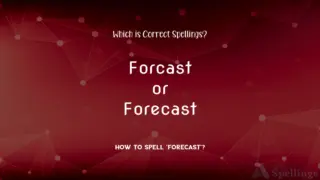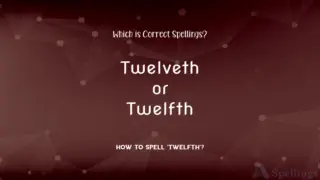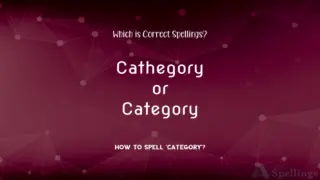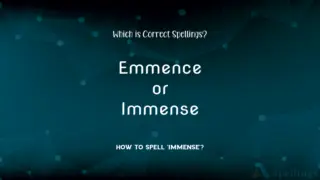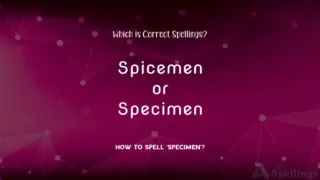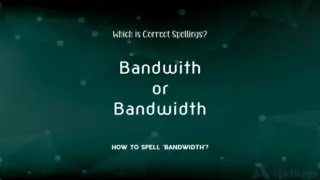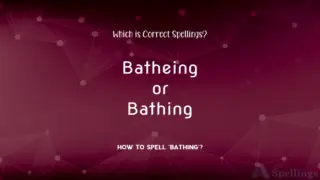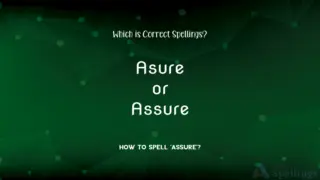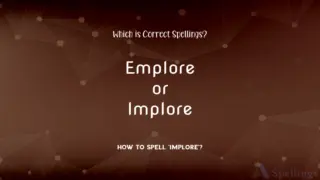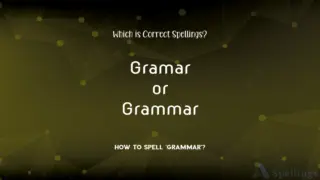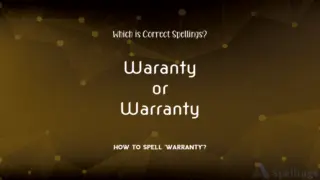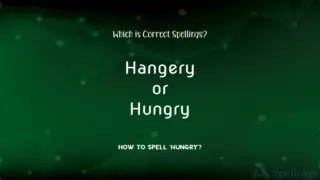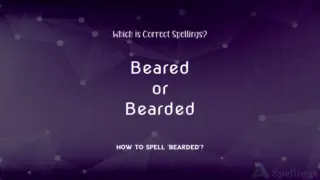Completly or Completely: Which is Correct Spellings?
The incorrect spelling is 'completly,' while the correct spelling is 'completely.' "Completely" means wholly, entirely, or in a total manner.
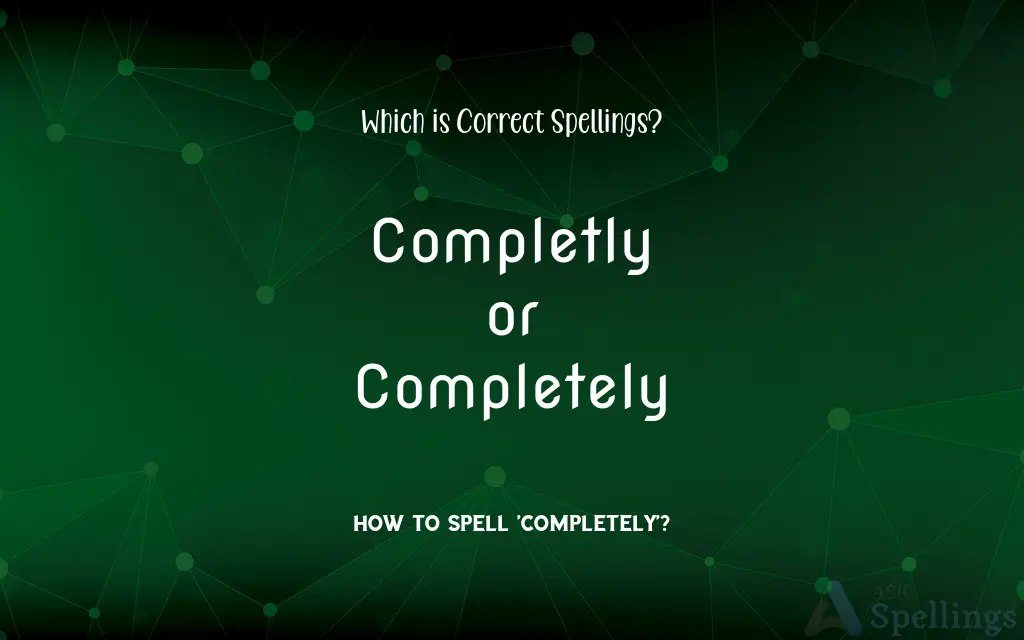
Which is correct: Completly or Completely
How to spell Completely?

Completly
Completly Spelling

Completely
Completely Spelling
Table of Contents
Is it Completly or Completely
Remember that 'completely' has 'ele' like in 'elephant,' a big animal for a total impact.
Associate 'completely' with 'completeness,' emphasizing the 'e' before the 't.'
Visualize 'completely' as 'comple-tely,' to remember the extra 'e' before 't.'
Think of 'complete' plus 'ly,' indicating the adverb form of 'complete.'
Use the mnemonic: "Complete Every Task LYrically," stressing on the 'e' in 'complete.'
How Do You Spell Completely Correctly?
Incorrect: The room was completly dark when I entered.
Correct: The room was completely dark when I entered.
Incorrect: She was completly surprised by the party.
Correct: She was completely surprised by the party.
Incorrect: The story was completly different from what I expected.
Correct: The story was completely different from what I expected.
Incorrect: The project was completly finished ahead of schedule.
Correct: The project was completely finished ahead of schedule.
Incorrect: He was completly unaware of the changes.
Correct: He was completely unaware of the changes.
Completely Definitions
With nothing lacking or left out.
The puzzle was completely solved by noon.
In every respect or aspect.
Her opinion was completely different from mine.
To an absolute degree or entirely.
The room was completely silent during the test.
To a full extent; totally.
The movie completely captivated the audience.
In a thorough manner.
He completely cleaned his room before his friends arrived.
Completely Meaning in a Sentence
She was completely absorbed in her painting.
His answer completely surprised the teacher.
Her room was completely organized and tidy.
The movie completely changed my perspective.
The book completely fascinated her.
The park was completely empty by sunset.
The team completely dominated the game.
He completely forgot about the meeting.
The garden was completely covered in snow.
She completely mastered the piano piece.
The city was completely quiet at night.
The story completely captured my imagination.
The music completely filled the room.
The news completely shocked everyone.
The sky was completely clear of clouds.
He was completely honest in his confession.
The lecture completely held my attention.
They were completely ready for the trip.
The street was completely decorated for the festival.
The class was completely silent during the exam.
The event was completely organized by volunteers.
The area was completely transformed overnight.
The book completely altered her thinking.
The decision was completely unanimous.
The explanation completely clarified the concept.
The solution completely resolved the problem.
The view completely took my breath away.
The game completely engaged all the players.
His performance completely exceeded expectations.
The victory completely uplifted the team's spirits.
Completely Idioms & Phrases
Completely new
Entirely or wholly new, not previously seen or experienced.
She moved to a completely new city to start afresh.
Completely overwhelmed
Overcome or overpowered to a great extent.
He felt completely overwhelmed by the workload.
Completely agree
To be in total or full agreement with someone or something.
I completely agree with your opinion on the matter.
Completely lost
Utterly confused or uncertain about location or direction.
Without the map, they were completely lost in the city.
Completely astonished
Extremely surprised or amazed.
She was completely astonished by the surprise birthday party.
Completely empty
Having nothing inside; utterly void.
The room was completely empty when they arrived.
Completely finished
Totally or fully completed or done.
He was completely finished with the project ahead of schedule.
Completely different
Totally or entirely dissimilar or unlike.
The movie was completely different from the book, much to the surprise of the fans.
Completely unaware
Having no knowledge or consciousness of something.
They were completely unaware of the changes that had been made.
Completely sure
Having no doubt; completely certain.
She was completely sure of her decision to start a new business.
Completely alone
Being entirely by oneself, without the presence of others.
She felt completely alone in her struggle.
Completely absorbed
Fully engaged or engrossed in something.
She was completely absorbed in her book and didn't hear the doorbell.
Completely changed
Altered or transformed in every aspect.
Moving abroad completely changed his perspective on life.
Completely forgotten
Not remembered at all; totally out of mind.
His name had been completely forgotten by everyone.
Completely out of place
Not fitting in; inappropriate or unsuitable for the situation.
He felt completely out of place at the formal dinner.
Completely unexpected
Not anticipated or foreseen at all.
The twist in the story was completely unexpected.
Completely normal
Entirely usual or typical; not abnormal.
It's completely normal to feel nervous before a big presentation.
Completely satisfied
Wholly content or pleased with something.
Customers were completely satisfied with the new product.
Completely destroyed
Utterly ruined or demolished.
The hurricane completely destroyed the coastal village.
Completely different story
An entirely different situation or matter.
Success is one thing, but happiness is a completely different story.
Common Curiosities
What is a stressed syllable in completely?
The stressed syllable in "completely" is the second syllable: "plete."
How many syllables are in completely?
There are three syllables in "completely."
Is completely a noun or adjective?
"Completely" is neither a noun nor an adjective; it's an adverb.
What is the pronunciation of completely?
Completely is pronounced as /kəmˈpliːtli/.
Is completely an adverb?
Yes, "completely" is an adverb.
Is completely an abstract noun?
No, "completely" is not a noun; it's an adverb.
Is completely a vowel or consonant?
The word "completely" starts with a consonant (c).
What is the root word of completely?
The root word of "completely" is "complete."
How do we divide completely into syllables?
Completely is divided into syllables as com-plete-ly.
Which vowel is used before completely?
There is no vowel before "completely"; it starts with the consonant 'c.'
What is the verb form of completely?
"Completely" does not have a verb form as it is an adverb.
Is completely a negative or positive word?
"Completely" is neutral; it is neither inherently negative nor positive.
What part of speech is completely?
"Completely" is an adverb.
What is another term for completely?
Another term for "completely" is "entirely."
Why is it called completely?
It's called "completely" from the root word "complete," meaning total or whole.
Is completely a countable noun?
"Completely" is not a noun; it's an adverb.
Is the word completely Gerund?
No, "completely" is not a gerund; it's an adverb.
Which determiner is used with completely?
Determiners are not typically used with the adverb "completely."
Is completely a collective noun?
No, "completely" is not a collective noun; it's an adverb.
Is the word “completely” a Direct object or an Indirect object?
"Completely" is an adverb and thus cannot be a direct or indirect object.
What is the singular form of completely?
"Completely" does not have a singular or plural form as it is an adverb.
Which conjunction is used with completely?
Conjunctions used with "completely" depend on the sentence structure, such as "and" or "but."
Is the completely term a metaphor?
"Completely" is not typically used as a metaphor; it's an adverb.
Is the word completely is imperative?
"Completely" cannot be imperative as it is an adverb, not a verb.
How is completely used in a sentence?
Example: "She completely understood the instructions."
Which article is used with completely?
Articles are not used with the adverb "completely."
What is the opposite of completely?
The opposite of "completely" is "partially" or "incompletely."
What is the plural form of completely?
"Completely" does not have a plural form as it is an adverb.
Which preposition is used with completely?
Prepositions are not typically paired specifically with "completely."
Share Your Discovery
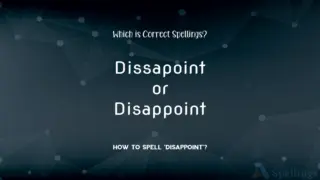
Previous Spelling
Dissapoint or Disappoint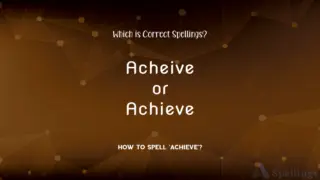
Next Spelling
Acheive or Achieve
